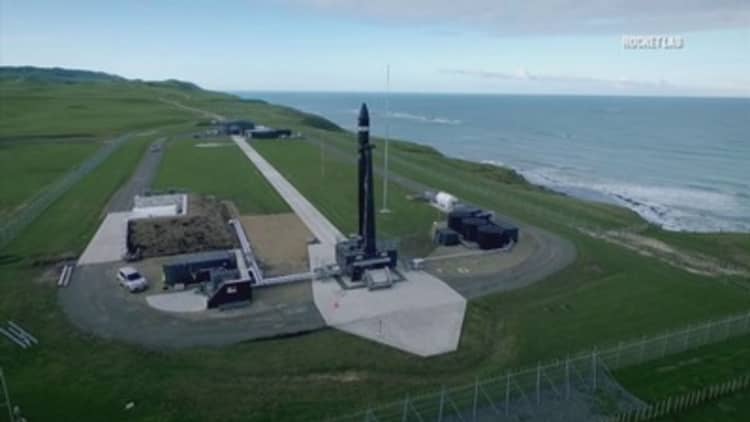
The Silicon Valley funded space company, RocketLab, has fired a battery powered, 3-D printed rocket into space from a launch pad in New Zealand.
The successful test marks the arrival of another player in the race to launch cheap rockets that can carry small satellites or other cargo.
RocketLab says it is the first of three trial flights in the lead-up to full commercial
The launch was captured on Rocket Lab's official Twitter account.
Space Race
SpaceX founder Elon Musk and Amazon founder Jeff Bezos are both attempting to develop reusable rockets in order to reduce the cost of space access.
But RocketLab is instead focussing on cheap, disposable rockets.
Their projectile, known as Electron, is 17 meters long and can carry a maximum payload of 225 kilograms.
The U.S.-Kiwi firm said it expected to launch more than 50 times a year once the company is fully up and running. The company said last year there were 22 launches from the United States and just 82 internationally.
Because of a lack of aviation in the skies over the South Pacific, New Zealand is seen as a potentially attractive place to conduct rocket launches.
And New Zealand's Minister for Economic Development Simon Bridges told local media that the launch made his country one of only 11 in the world able to launch satellites.
He said it provided an opportunity to attract other aerospace companies to set up in New Zealand.
Correction: This story has been updated to show that the rocket can carry a payload of 225 kilograms.





